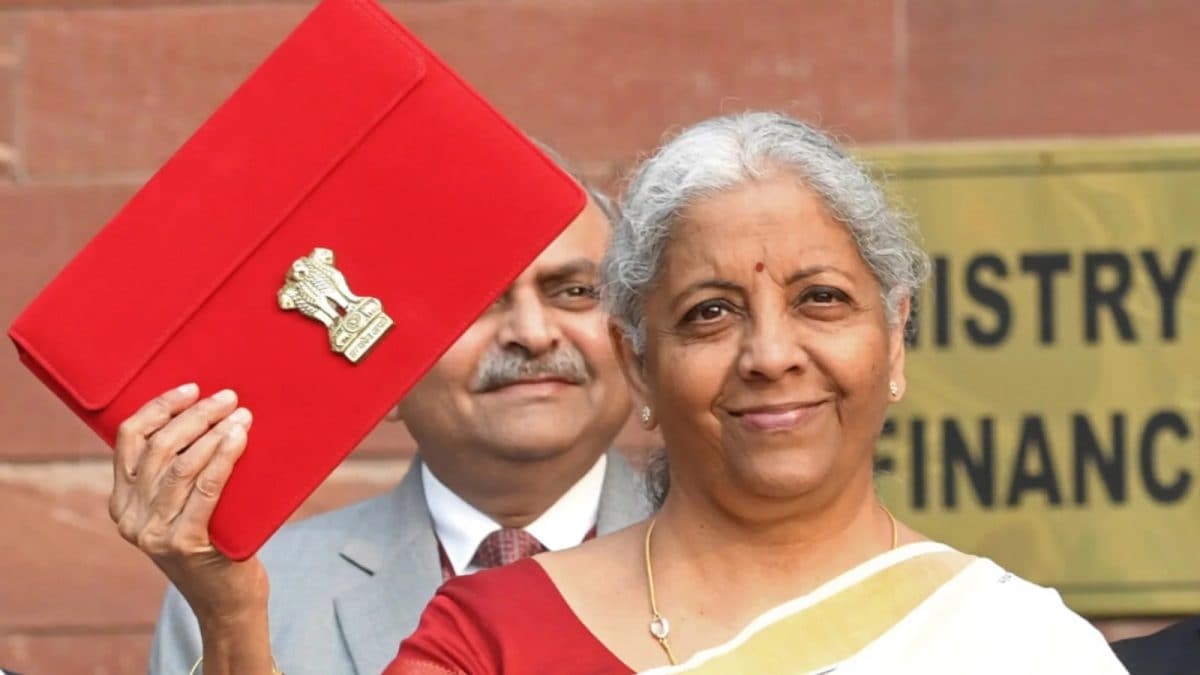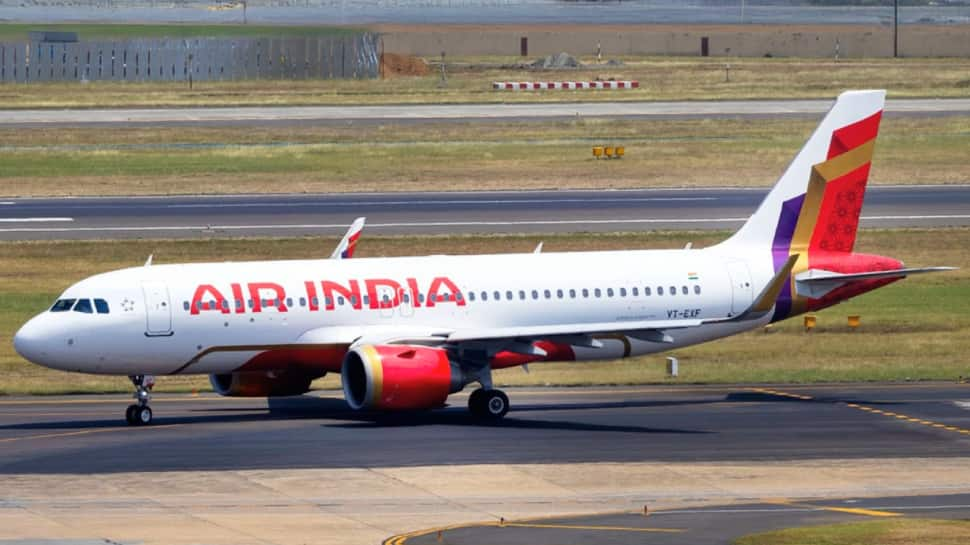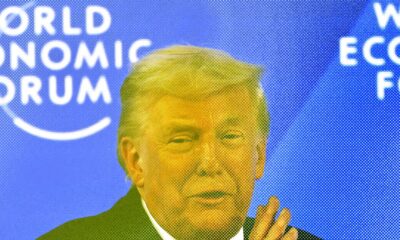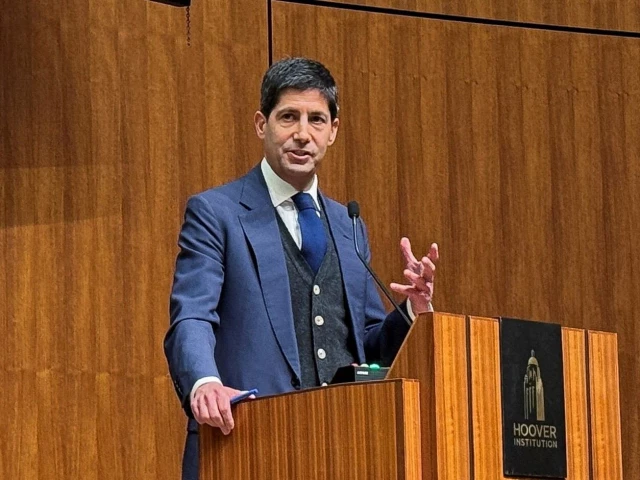Business
Lamborghini CEO says tariffs are causing even the wealthiest buyers to pause

Uncertainty around tariffs has caused even the wealthiest buyers of Lamborghini supercars to hold off on their purchases, CEO Stephan Winkelmann told CNBC.
While the White House recently announced an agreement with Europe on a 15% tariff rate, that rate hasn’t yet taken effect for cars. Lamborghini and other European automakers are still paying a tariff rate of 27.5% on exports to the U.S. With the price of a Lamborghini starting at $400,000, many buyers are choosing to wait for more stable tariff rates before buying, Winkelmann said.
“Some are waiting because they want to be sure that this is the final number that is going to be in place,” Winkelmann said. “Others are fine with it, or we will have negotiations.”
Wherever the final tariff rate settles, however, Winkelmann said the levies will have some impact on the company’s business. He said Lamborghinis can’t be produced in the U.S., since the “made in Italy” promise is core to the brand. And he said that even the wealthy are sensitive to price increases.
“They are millionaires or billionaires for a reason, so they know what they’re doing and why they’re doing things,” he said. “For us, free trade is the right approach. We all know that is what we want. But then there is the reality, and we have to deal with complexity, since we are in business. … We are ready to face whatever comes.”
For now, the company is fairly insulated from any immediate drop-off in demand, since it has a large back order. Cars being delivered today were ordered a year or two ago. Lamborghini announced this summer to dealers that prices would increase by 7% for the Temerario and Urus models and 10% for the Revuelto.
The company, owned by Volkswagen‘s Audi Group, is also riding high from a wave of new models. It reported record revenue in 2024 of more than 3 billion euros ($3.5 billion) and deliveries of 10,867 cars. It’s launched three new models since 2023, all plug-in hybrids: the 8-cylinder Temerario, which replaces the Huracan; the 12-cylinder Revuelto, which replaces the Aventador; and the Urus SE, a hybrid SUV.
For an upcoming fourth model, Lamborghini had announced an all-electric grand touring car to debut sometime in 2028. But Winkelmann said with EV demand slowing, the company is considering releasing it as a hybrid instead and will decide by the end of the year.
“There is a flattening in the acceptance of electric cars, not only at the high end and exclusive supercars, but also in the general market,” he said. “So the trend is going to be delayed in general, and we have to decide. For a car like Lamborghini, it’s not important to be the first one to show a new technology, but to be there when it’s accepted and to have the best technology at that time.”
Last week at Monterey Car Week, Lamborghini unveiled a new limited-production supercar called the Fenomeno. It’s the fastest and most powerful Lambo yet, boasting 1,080 horsepower and 0 to 60 in 2.4 seconds thanks to a 6.5-liter, V-12 engine paired with three electric motors.
Lamborghini will make only 29 Fenomenos, which are part of what Winkelmann calls the “few-offs” strategy of super-rare, hyper-performance versions of its current lineup for top clients.
Also helping the company: a surge in wealth around the world that’s becoming younger and more diverse. Lamborghini owners have an average of five cars in their garage, and owners of the higher-priced Lambos have an average of 10 cars. The average age of the Lamborghini buyer now is under 45, and in Asia it’s under 30, he said.
“There are a lot of countries where we have very young customers,” he said. “We have the second generation of wealth. But we also have a very young customer base of entrepreneurs who made their money themselves.”
Relative to the growth in global wealth, however, Lamborghini’s production has remained small. And while the U.S. is still its largest market, Lamborghini carefully manages supply in every country to make sure the brand remains exclusive and special, Winkelmann said.
“We will always look to make sure we do not crowd one market, and to have always a global view where we are selling the cars,” he said.
Women, he said, will also be a key driver. The Urus has welcomed more women buyers to the brand, and Lamborghini is holding more women-focused events, like the “She Drives a Lambo” driving gatherings.
“We have always been a very male-driven brand, very attractive to males with the design and performance,” Winkelmann said. “But on the other side, we are seeing that with the Urus, we have a lot more women stepping into the brand and having confidence with the brand.”
Business
Harry Styles and Anthony Joshua among UK’s top tax payers

The former One Direction member-turned-solo artist appears on the Sunday Times list for the first time.
Source link
Business
From Manufacturing To Infra And AI: Capex Boost Flags Off Budget 2026 ‘Reforms Express’

Last Updated:
Budget 2026: FM Nirmala Sitharaman gives a strong push to manufacturing, infrastructure and job creation, while proposing a simpler tax and customs system.

Finance Minister Nirmala Sitharaman presents the Union Budget 2026-27.
Budget 2026 Takeaways: Finance Minister Nirmala Sitharaman on Sunday presented the Union Budget 2026-27, giving a strong push to manufacturing, infrastructure and job creation, proposing a simpler tax and customs regime, and hailing the government’s modernisation drive as a “reforms express”.
The Budget 2026 is anchored around three ‘kartavyas’ — driving growth by enhancing productivity and competitiveness, building people’s capacity, and ensuring inclusive development under the vision of Sabka Saath, Sabka Vikaas.
In her ninth consecutive Budget in Parliament, Sitharaman laid out a multi-pronged strategy to sustain growth amid global uncertainty, including expanding domestic electronics and semiconductor capabilities, de-risking infrastructure projects, skilling India’s youth for emerging technologies, and easing compliance for taxpayers and importers.
Here are the key takeaways from Budget 2026 across manufacturing, infrastructure, skills, AI, taxation and customs duty.
Manufacturing Gets A Boost
Budget 2026 put a special emphasis on the manufacturing landscape in India. The outlay for electronics components manufacturing was raised sharply to Rs 40,000 crore, while new schemes for rare earth magnets, chemical parks, container manufacturing and capital goods seek to reduce import dependency, and strengthen domestic supply chains. Textiles got an integrated, employment-oriented package covering fibres, clusters, skilling and sustainability.
Infrastructure-Led Growth
Infrastructure got a boost with a higher capex allocation and initiatives like a risk guarantee fund to de-risk projects for private developers, new dedicated freight corridors and national waterways, dedicated REITs (real estate investment trusts) for recycling of significant real estate assets of central public sector enterprises (CPSEs), and a seaplane VGF (viability gap funding) scheme.
The Centre’s capital expenditure (capex) target has been increased to Rs 12.2 lakh crore for FY27, up from Rs 11.2 lakh crore earmarked for the current financial year. Moreover, maintaining the fiscal discipline, Sitharaman said the government expects the fiscal deficit to be at 4.3 per cent of the GDP in 2026-27, lower than 4.4 per cent projected for the current financial year.
Tier-II and Tier-III cities were placed at the centre of urban growth via City Economic Regions, backed by reform-linked funding.
“We shall continue to focus on developing infrastructure in cities with over 5 lakh population (Tier II and Tier III), which have expanded to become growth centres,” Sitharaman said in her Budget Speech.
Greater Emphasis On Skilling
The Budget placed renewed emphasis on the services economy as a jobs engine. A high-powered Education-to-Employment and Enterprise Committee will realign skilling with market needs, including the impact of emerging technologies.
Content creation and creative industries get a boost through AVGC labs in schools and colleges, support for animation, gaming and comics, and new institutional capacity for design and hospitality. Tourism-linked skilling, from guides to digital heritage documentation, signals a clear intent to convert culture and content into employment and exports.
“I propose to support the Indian Institute of Creative Technologies, Mumbai in setting up AVGC Content Creator Labs in 15,000 secondary schools and 500 colleges,” FM Sitharaman said. AVGC stands for animation, visual effects, gaming and comics.
AI & Semiconductors Push
Artificial intelligence (AI) was positioned as a cross-sector force multiplier rather than a standalone theme. The Budget provided a push to artificial intelligence (AI) by promoting adoption with governance, agriculture, education and skilling, including proposals for AI-enabled advisory tools for farmers and AI integration in education curricula.
On hardware, the semiconductor strategy expanded decisively under ISM 2.0 (India Semiconductor Mission 2.0), with focus on domestic equipment manufacturing, materials, research centres and workforce development, signalling a long-term commitment to building a resilient chip ecosystem in India.
Taxation, ITR, TDS, TCS
A major structural reform comes with the Income Tax Act, 2025, effective April 1, 2026, containing simpler rules and redesigned forms.
Budget 2026 provided compliance relief for individuals, including extended timelines for revising returns to March 31 from December 31 earlier, staggered ITR due dates, and easier filing of Form 15G/15H through depositories.
Individuals with ITR-1 and ITR-2 returns will continue to file till July 31, and non-audit business cases or trusts are proposed to be allowed time till August 31, according to the Budget Speech 2026-27.
“I propose to extend time available for revising returns from 31st December to up to 31st March with the payment of a nominal fee. I also propose to stagger the timeline for filing of tax returns. Individuals with ITR 1 and ITR 2 returns will continue to file till 31st July and non-audit business cases or trusts are proposed to be allowed time till 31st August,” Sitharaman said.
TDS (Tax deducted at source) rules were clarified for manpower services, while a rule-based system for lower or nil TDS certificates is proposed. TCS rates were cut to 2% for overseas tour packages, education and medical expenses under liberalised remittance scheme (LRS). Litigation is targeted through integrated assessment and penalty orders, lower pre-deposit requirements, and wider immunity provisions.
TDS on the sale of immovable property by a non-resident will be deducted and deposited through resident buyer’s PAN (Permanent Account Number)-based challan instead of requiring TAN (Tax Deduction and Collection Account Number), Sitharaman said.
Customs Duty Tweaks
Customs duty rationalisation continued with a clear focus on domestic manufacturing, energy transition and ease of living. Exemptions have been extended or introduced for capital goods used in lithium-ion batteries, critical minerals processing, nuclear power projects and aircraft manufacturing.
Personal imports will become cheaper with a reduction in duty on goods for personal use from 20% to 10%. Seventeen cancer drugs and additional rare-disease treatments were exempted from customs duty. Process reforms aimed at trust-based, tech-driven clearances, faster cargo movement and lower compliance costs, especially for exporters and MSMEs (micro, small, medium and enterprises).
STT On F&O Hiked
The Budget increased securities transaction tax (STT) on futures trading from 0.02% to 0.05% and on options trading from 0.10% to 0.15%, a move that upset the capital markets with the BSE Sensex crashing more than 2,300 points from the day’s high and the NSE Nifty dropping to 24,571.75.
Securities Transaction Tax (STT) is a direct tax imposed on the buying and selling of securities in India.
Commenting on the Budget, Prime Minister Narendra Modi said, “The Union Budget reflects the aspirations of 140 crore Indians. It strengthens the reform journey and charts a clear roadmap for Viksit Bharat.”
February 01, 2026, 14:43 IST
Read More
Business
Air India resumes direct Shanghai-New Delhi flights after nearly six years

Shanghai (China): The Consulate General of India in Shanghai welcomed the resumption of Air India’s direct flight services between Shanghai and New Delhi, marking a major step forward in restoring people-to-people, business and institutional connectivity between India and China.
According to an official release, the inaugural Shanghai-New Delhi flight departed today from Shanghai Pudong International Airport, carrying over 230 passengers on board the Boeing 787 aircraft. The relaunch comes after a gap of nearly six years and represents a significant milestone in normalising bilateral air connectivity following the suspension of services in early 2020.
Speaking on the occasion, Consul General Pratik Mathur said, “The resumption of direct flights between Shanghai and New Delhi is a tangible expression of the renewed momentum in India-China engagement. Enhanced air connectivity is essential for facilitating trade, tourism, academic exchanges and people-to-people contacts, particularly between India and East China. We are pleased to see Air India restoring this important link.”
As per a release, Air India will operate the route four times a week using its Boeing 787-8 Dreamliner aircraft, featuring modernised cabins and enhanced onboard services. The restored service reflects the growing demand for travel between the two countries and the steady recovery of cross-border mobility. It will also support commercial, educational and cultural exchanges between India and the Yangtze River Delta region, one of China’s most economically dynamic clusters.
The Consulate General of India in Shanghai remains committed to supporting initiatives that strengthen connectivity and deepen cooperation across trade, investment, tourism, education and cultural exchange, the release stated.
-

 Sports5 days ago
Sports5 days agoPSL 11: Local players’ category renewals unveiled ahead of auction
-

 Entertainment1 week ago
Entertainment1 week agoThree dead after suicide blast targets peace committee leader’s home in DI Khan
-

 Tech1 week ago
Tech1 week agoThis Mega Snowstorm Will Be a Test for the US Supply Chain
-

 Entertainment5 days ago
Entertainment5 days agoClaire Danes reveals how she reacted to pregnancy at 44
-

 Fashion1 week ago
Fashion1 week agoSpain’s apparel imports up 7.10% in Jan-Oct as sourcing realigns
-

 Tech1 week ago
Tech1 week ago‘Uncanny Valley’: Donald Trump’s Davos Drama, AI Midterms, and ChatGPT’s Last Resort
-

 Tech1 week ago
Tech1 week agoICE Asks Companies About ‘Ad Tech and Big Data’ Tools It Could Use in Investigations
-

 Sports5 days ago
Sports5 days agoCollege football’s top 100 games of the 2025 season












